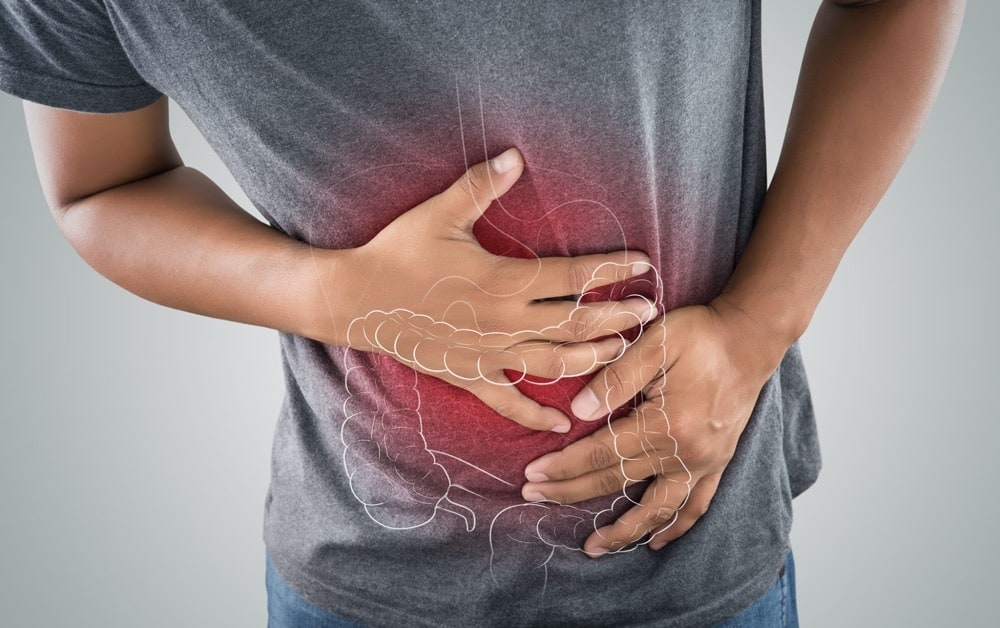Bloating and abdominal pain are some of the most common symptoms of gluten intolerance. But the bottom line is, could your pain or ingestion signal something more serious? Let’s find out.
Gluten intolerance is a common digestive issue caused due to unfavourable reaction to gluten-a form of protein found in most food items including medicines and cosmetics.
It is a type of allergy where an individual suffers from pain, diarrhea, ingestion, bloating and perhaps tiredness after they have consumed gluten-based food.
The symptoms of gluten intolerance may also resemble those of intestinal diseases including coeliac disease, which is an autoimmune condition of severe gluten intolerance.
And because of this reason, coeliac disease can go undiagnosed and the only way to be aware of this condition is through a medical examination.
Gluten intolerance could be coeliac disease too

Gluten intolerance is a specific term that comprehends coeliac disease and non-coeliac gluten intolerance. Although these conditions have very similar symptoms, diagnosing coeliac disease is important as it comes with no cure.
For people with coeliac disease, even consuming a small amount of gluten can be very dangerous. When someone with coeliac disease eats something with gluten, their body overreacts to cause numerous digestive issues.
Not only that, people with coeliac disease have an increased risk of developing bowel cancer.
Almost 1 in 70 Australians are suffering from this condition, making it one of the most common health concern in the country.
How does Coeliac disease affect the digestive system?
Celiac disease occurs when the immune system confuses gluten with a foreign germ and mistakenly attacks its own tissues as an act of defence.
This is an autoimmune disease, meaning your immune response acts as a reaction causing severe damage to villi, which are found in the inner lining of the small intestine.
Although, it is still not clear as to why the immune system reacts this way, a combination of environmental factors and genetics seems to influence this immune reaction.
What are the symptoms of coeliac disease?
Eating anything with gluten can trigger a range of symptoms including:
- Diarrhea, which is one of the first symptoms people see even before being diagnosed
- Weight loss and difficulty maintaining a healthy weight
- Tiredness and fatigue as a result of not absorbing enough nutrients.
- Disorders that affect co-ordination, speech and balance
- Loss of bone density or osteoporosis
- Missed menstrual cycles in women
- Inflammation leading to bloating
- Numbness in the hands and feet
- Stomach ache
- An itchy rash
- Constipation
- Ingestion
- Diarrhea
When to see a doctor for coeliac disease?
Since coeliac disease comes with many symptoms resembling other intestinal issues like irritable bowel syndrome or lactose intolerance, it is best advised to see a doctor immediately when you suspect any symptoms.
If anyone is suffering from certain diseases like Type 1 Diabetes, Down’s Syndrome or autoimmune thyroid disease, then you must see a doctor regularly.
It is also advised for people with a first-degree relative with coeliac disease must consult a doctor for testing as they are at an increased risk of coeliac disease.
Is there a long-term solution for patients with coeliac disease?

Since the coeliac disease is a lifelong condition, strictly adhering to a gluten-free diet is the only prognosis for living with this condition.
Avoid eating anything that is not labelled gluten-free. Avoid pasta, cake, beer, pies, etc unless they are gluten-free. You must also follow a good diet that gives you all the necessary nutrients.
Following a gluten-free diet will prevent and reduce damage in the small intestine. For adults, the healing from an immune attack can take up to 3 years before they feel ok.
A GP plays an important role in coeliac disease management, as they decide when to go for a test. They will most likely advise a blood test called Anti Tissue Transglutaminase Antibody and refer to a specialist like a Gastroenterologist for further treatment.

